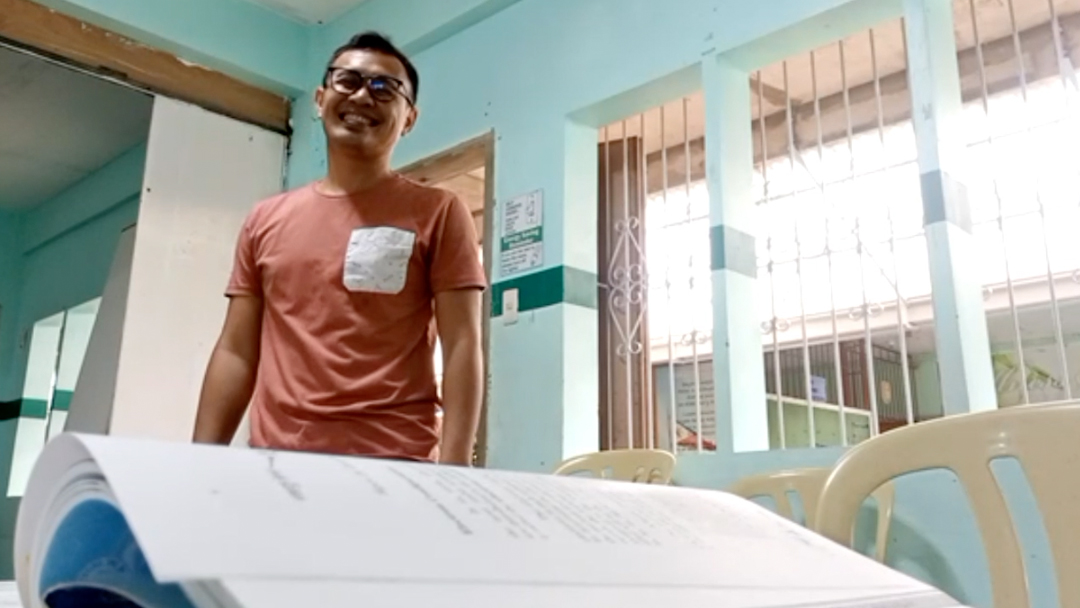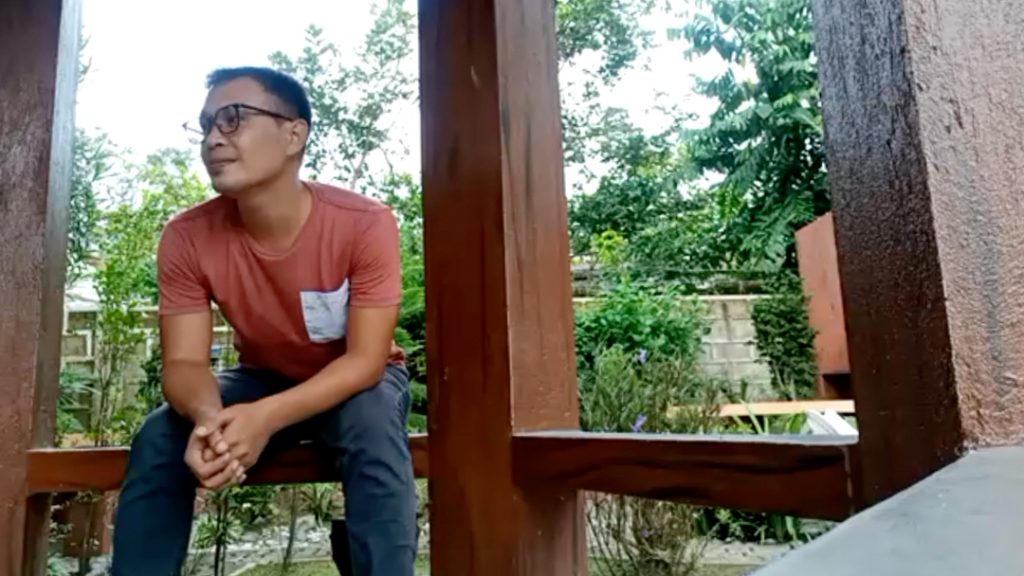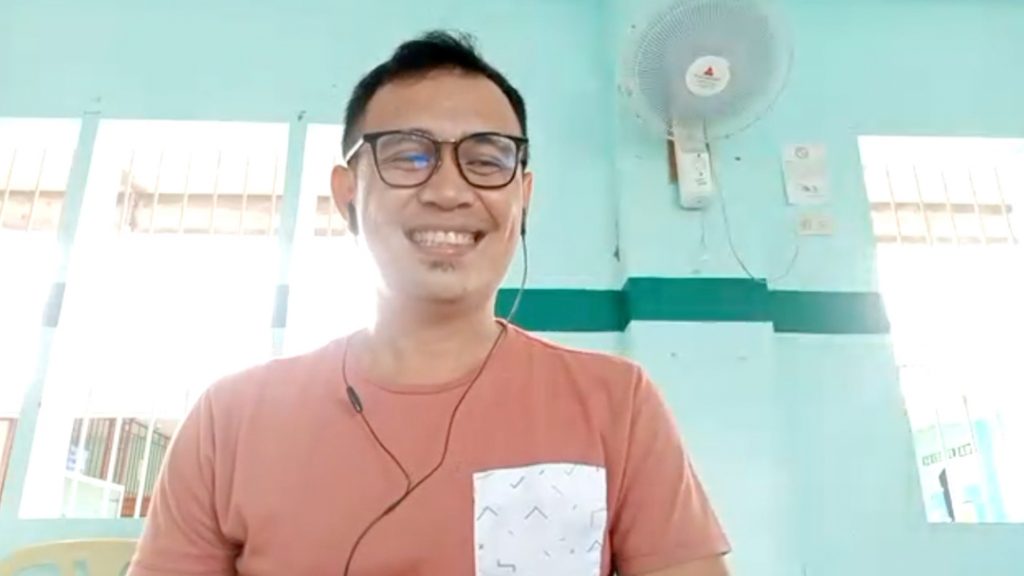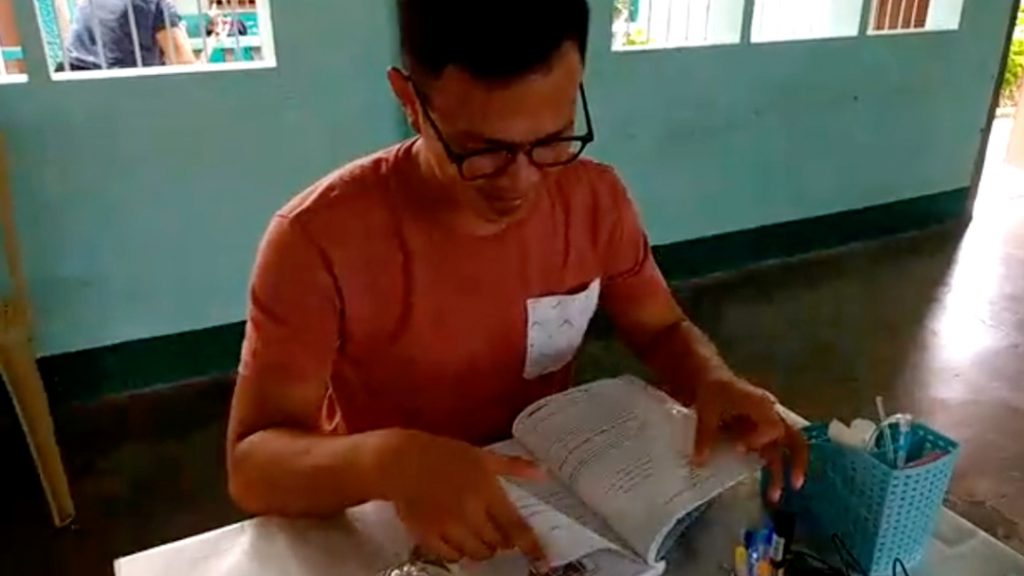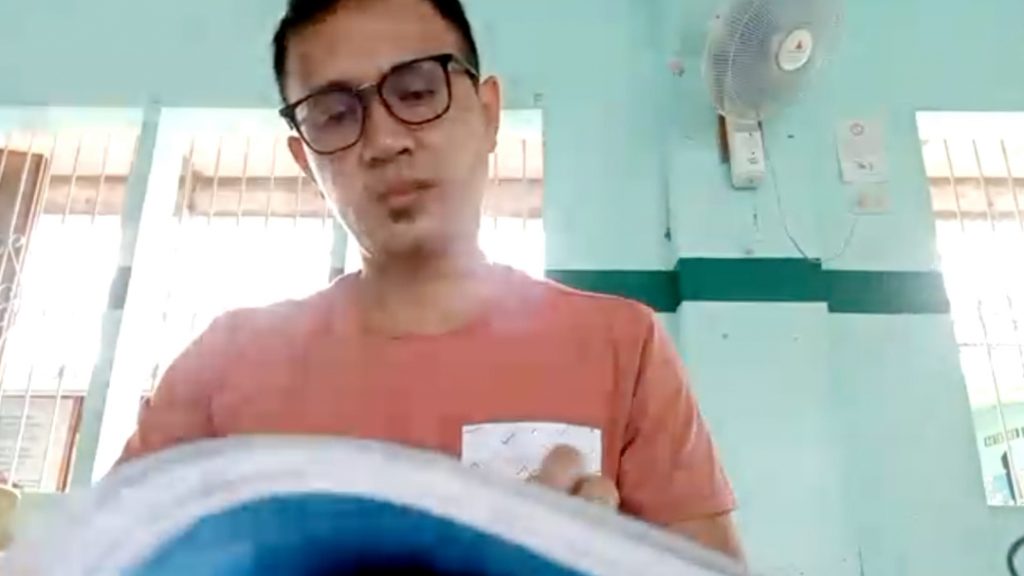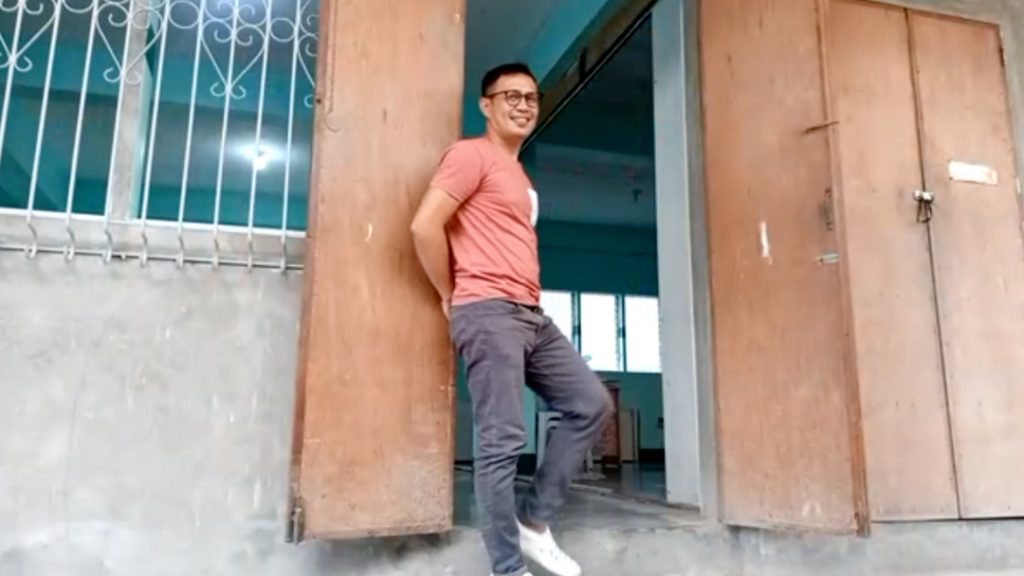This is part of #KaraniwangLGBTQIA, which Outrage Magazine officially launched on July 26, 2015 to offer vignettes of LGBT people/living, particularly in the Philippines, to give so-called “everyday people” – in this case, the common LGBTQIA people – that chance to share their stories.
As Outrage Magazine editor Michael David C. Tan says: “All our stories are valid – not just the stories of the ‘big shots’. And it’s high time we start telling all our stories.”
Dennis Jardeleza – 37, from Mogpog, Marinduque – was young (around 5 or 6) when he knew he’s different. In fact, it was his Mom who first noted that he’s “soft/effeminate”. “I never doubted this. I always said there’s a big chance I’d turn gay. This is because I have an uncle, and a grandfather who are gay,” he said.
The eldest of three kids, “I never had any issue with my Mom; she was very supportive. It was the same with my two sisters. But with my Dad, I had some problems. These weren’t big problems. Maybe he was in denial as I’m the only son. Maybe he was hoping I’d follow in his footsteps. That I’d also have my own family. But he eventually also accepted me because I told him, ‘Dad, you have no choice because being gay runs in your blood.’ This runs in your family. So there’s nothing we can do about this.”
Dennis remembered also “pledging” to his Dad that he’d do good… even if he’s gay. “I told him I’d make sure he’d be proud of me even if I’m gay.”
Obviously, Dennis wasn’t spared from bullying in the community. But he’d rather not dwell on this. “Maybe if there was bullying, it was minimal. But did people verbally abuse me to shame me? That never happened to me.”
GROWING UP LGBTQIA IN MOGPOG
“I believe that being LGBTQIA in Mogpog isn’t that hard,” Dennis said.
This is because “the community here is very supportive of LGBTQIA people. You won’t experience being verbally abused here, being catcalled: ‘Faggot!’ We don’t have those in Mogpog; they accept you here. They accept who you are, what you are. Here, if you’re gay, you’re recognized as talented. You’re recognized as productive.”
WORKING AS A TEACHER
A graduate of Bachelor of Secondary Education, major in Music, Arts and Physical Education (MAPE), Dennis is – “of course” – a teacher. His first job was in Metro Manila. But he decided to return home after he was elected barangay councilor. He took a leave from public office, though; which was when he ended up working as an educator in his alma mater.”
“Living productively as a gay person depends on how your community will accept you. If you live well, if you do good, you’ll be accepted for who you are. My being gay was never a hindrance. Being gay is not a factor in the teaching profession as long as you do good to your community. As long as you help your community and you are very productive, then everything will run smoothly,” Dennis said.
Would he recommend teaching as a professions for LGBTQIA people?
“Teaching is a calling. We may be able to say that all gays are talented. But not all of them can teach,” Dennis said. “Perhaps everyone can teach something. Such as choreography as taught by dancing instructors. But teaching inside the classroom is different. Here, you also teach values that you also apply in your life.”
This is why being a gay teacher is tricky, said Dennis.
“This is why I also say it’s hard to be a gay teacher because what you teach, you should also heed. So if you’re a gay teacher, you can’t be flamboyant, or boisterous. You can’t be a ‘screaming faggot’, no. Teaching isn’t for everyone. Just because you can teach how to dance doesn’t mean you can be an effective teacher inside the classroom.”
FOCUS ON FAMILY
Dennis is single now. “My mind is focused on new things, and on my family,” he said, adding that “particularly since I have a relative who needs my support.”
The dating scene in Mogpog can be easy for some LGBTQIA people, though not for all. “Lesbians find relationships faster here. I don’t know why. But for gays, based on my experience, it’s harder.”
But for Dennis, other LGBTQIA people are also family members.
“We need LGBTQIA organizations because LGBTQIA people should get support from other LGBTQIA people,” he said. “You should have backup support. It’s not every day that a straight friend will support you. You should have someone who’ll be there for you, who will help you at the end of the day. That someone will be another LGBTQIA person.”
A big LGBTQIA issue in Mogpog has to do with livelihood. Times are difficult now. “For some like us, at least we still get salaries from companies we work for. But there are gay men, for example, whose source of income are hosting events (canceled by the pandemic). This is really an issue; help them make a living. It’s better if we can do something about this.”
WORDS OF WISDOM
“I always tell younger LGBTQIA people in Mogpog, if you choose to live as LGBTQIA, be sure you can live up to the expectations. You can be gay, but be one who can’t be abused or be laughed at. You should be that type of gay person who will be recognized eventually. You should be that gay person who will be loved by your community. So you should be productive. If you’re not productive, who will you be in the community? And if you’re a lesbian, you should also achieve something; you should prove something.”
For Dennis, this is also because of the collective way people treat LGBTQIA people.
“You’re not just representing yourself. When you say you’re gay, it’s not just about you. There are many gay people, and so you don’t just represent yourself. So as an individual gay person, you should act accordingly. There’s no problem with showing your true colors. Sometimes we can also be flamboyant. But everything has a proper place. You don’t have to be always right. But what you do now, you shouldn’t regret later. You won’t be sorry about this tomorrow. And you won’t be sorry about it in the future. What you do now should be a source of pride of your parents.”
Obviously many still continue not to fully embrace LGBTQIA people.
“To families that can’t accept their LGBTQIA members, open your mind. Open your heart. That’s it. Accept them for who and what they are. This also makes it easier for them. It will be easy on his/her/their mind and heart, that he/she/they’re accepted. That they’re loved,” Dennis said.
And to everyone residing in Mogpog, “be good to us, LGBTQIA people. One way or another, we can help you. Let’s just love one another since we live in the same place. No one will help us; only people of Mogpog can help each other,” Dennis ended.


































